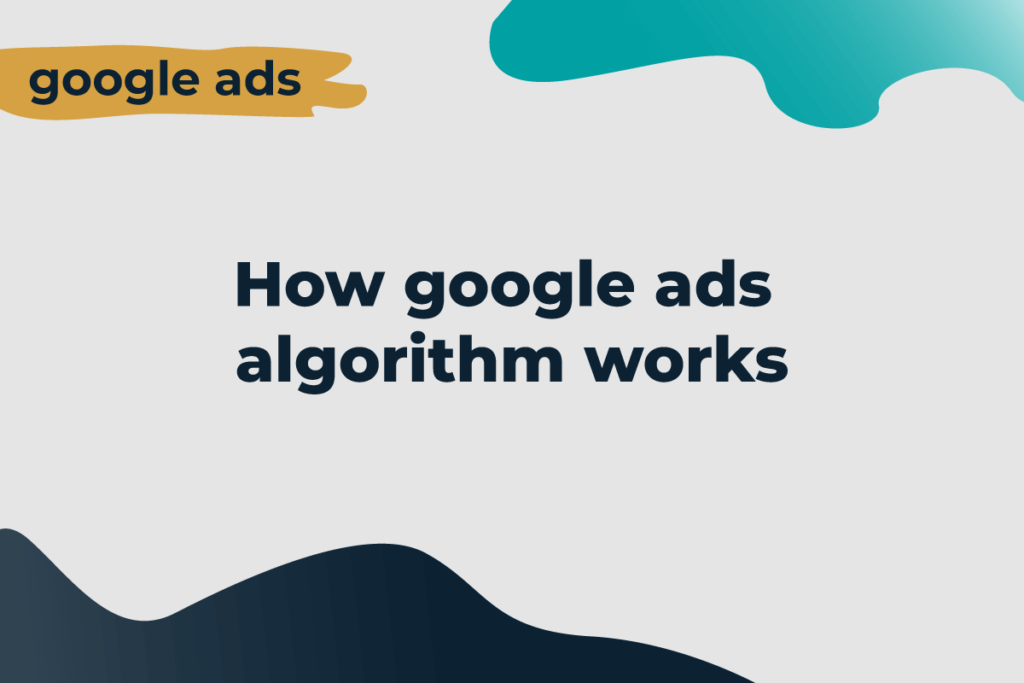Google Ads is one of the main marketing channels for many e-commerce companies. You’re doing something wrong if you have a business and don’t pay for Google Ads. For your business to be successful, you need to invest in your online presence. Today we’ll go over the Google Ads algorithm and how it works.
Many people who own their businesses decide to manage their PPC campaigns. People think this type of campaign is easy to manage, but it is not. Everyone can run a campaign, but not everyone will set it up properly. In our blog, you can find some crucial tips on how to plan Google Ads campaigns.
Most people don’t understand how the Google Ads algorithm works. You need to know and understand how the algorithm works to make a successful advertising campaign. That is what we’re going to talk about in this blog post – How the Google Ads algorithm works and how to use it to your advantage.
How does Google’s algorithm work?
Google strives to show the best possible results to its users. It is one of the most important things to remember. Google doesn’t want a good result – it wants the best. If you want to get ahead, you need to understand that.
Don’t try to fight the algorithm, don’t try to outsmart it. Try to understand it, and you will get the most out of it. When you know what Google values and what it is looking for, you’ll know what to start offering it.
Google’s algorithm mainly takes into account a few things:
- Search intent – synonyms, context, misspellings, category, etc. Google considers all these things before displaying search results.
- Relevance – Google assesses whether a website will be relevant to this search by scanning its content. Keywords, photos, videos, and so on.
- Content Quality – Google does not offer poor-quality content. It always puts quality websites with quality content at the top. Scans content for spam and looks for credibility.
- Website Quality – This is just as important as content quality. Your website should load fast, be easy to use, and have a good UX. Google cares about quality.
These are just some of the things that Google takes into account. He strives for the best results. It wants users to be satisfied and find what they are looking for.
Keyword optimization is crucial because keywords are at the heart of every search query.
As we’ve already mentioned, there is no way to outsmart Google’s algorithm, and there is no point in trying to. You must start understanding how it works and take advantage of it. It will bring you much more success and good results.
The three most important things to understand about the Google Ads algorithm are Ad Position, Ad Rank, and Quality Score. If you understand them, you will have much more success with your advertising campaigns.

Ad Position
According to Google: “Ad position is the order of your ad in the auction results compared to other ads. For example, an ad position of ‘1’ means that the ad is the first ad shown, with no other ads before it.”
In the Google SERP, ad position can affect the location of your ad on the page; your ad can appear at the top, side, or bottom of the page. Popularity metrics, your best and absolute highest metrics, will give you a better idea of where your ads are in the SERPs. Key leading metrics include impression rate/share and lost share. A few ways to improve these metrics include improving ad/landing page quality and increasing your bid.
The better the position of your ad, the greater the chance that searchers will see and click on your ad.

Ad Rank
Generally speaking, this determines where your ad will appear. It determines the position and page of the search engine. It is equal to the Maximum Bid x Quality Score.
Google calculates ad rank for ads in the ad auction, and your ad rank directly translates into your ad position.
Google takes into account quite a few more things to determine Ad Rank. Some of them are:
- Bid: The maximum amount you are willing to pay for a click on your ad.
- Ad and Landing Page Quality: Relevance and usefulness of ads and landing pages as determined by Quality Score.
- Ad Auction Competitiveness: Difference in ad rank between you and other auction participants.
- Search context: whether the ad is relevant to the search terms, location, device, other search results, etc.

Quality Score
It is how search engines rate your ad based on your clickthrough rate (CTR) – measured against the average CTR of ads in that position – the relevance of your keywords, the quality of your landing page, and Your previous SERP performance.
As we have mentioned several times, quality is crucial to Google. He cares a lot about the quality of both the content and the website itself. If your Quality Score is too low, your ad may not even be eligible for the ad auction. After all, Google doesn’t want to risk its reputation with bad ads.
Quality Score is measured as a number from 1 to 10, with 1 being the lowest and 10 being the highest.
Once you know what the main components of the Google Ads algorithm are, you understand that everything is connected. You can’t rely solely on a high bid or a great Quality Score. Even if your ad is quality, it may not be relevant, and so on.
You can’t improve your Ad Position without your Ad Rank, and you can’t improve your Ad Rank without a good Quality Score. All this requires a lot of work and time.

The most important thing is to create high-quality ads for your potential customers. There are many different factors to consider. In our blog, you can learn 10 Mistakes to Avoid When Setting Up a Google Ads Campaign and How to keep Google Ads costs under control.
All this is not easy and requires a lot of time and attention. Although many people think managing Google Ads campaigns is easy, it is not.
Everyone can launch a campaign, but not everyone will set it up correctly. Many people find it difficult to set it up to be successful. But it is okay. We at Dreamtech are here to help.
If you are interested in our services, you can view them here. We prepare a personalized plan for you to succeed. You can read what Google Ads is, how it works and why it’s so important on our blog.
If you have additional questions you can always contact us or book your appointment for a free consultation. This way, you can easily and quickly find out what we can do for you and how we will help you grow your business.













